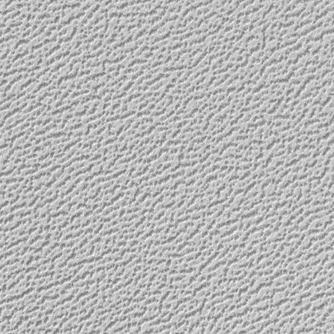

MGS MOC Release No. MOC2-214, 8 March 2000

The surface looks somewhat like that of a kitchen sponge---it is flat on top and has many closely-spaced pits of no more than 2 meters (5.5 ft) depth. The upper, flat surface in this image has a medium-gray tone, while the pit interiors are darker gray. Each pit is generally 10 to 20 meters (33-66 feet) across. The pits probably form as water ice sublimes--going directly from solid to vapor--during the martian northern summer seasons. The pits probably develop over thousands of years. This texture is very different from what is seen in the south polar cap, where considerably larger and more circular depressions are found to resemble slices of swiss cheese rather than a kitchen sponge.
This picture was taken by the Mars Global Surveyor (MGS) Mars Orbiter Camera (MOC) during northern summer on March 8, 1999. It was one of the very last "calibration" images taken before the start of the Mapping Phase of the MGS mission, and its goal was to determine whether the MOC was properly focused. The crisp appearance of the edges of the pits confirmed that the instrument was focused and ready for its 1-Mars Year mapping mission. The scene is located near 86.9°N, 207.5°W, and has a resolution of about 1.4 meters (4 ft, 7 in) per pixel.
Malin Space Science Systems and the California Institute of Technology built the MOC using spare hardware from the Mars Observer mission. MSSS operates the camera from its facilities in San Diego, CA. The Jet Propulsion Laboratory's Mars Surveyor Operations Project operates the Mars Global Surveyor spacecraft with its industrial partner, Lockheed Martin Astronautics, from facilities in Pasadena, CA and Denver, CO.